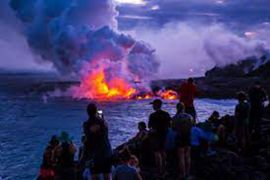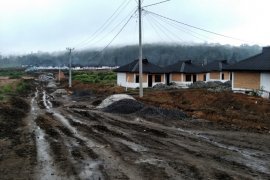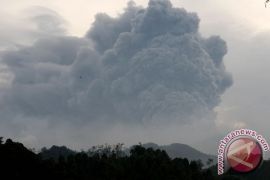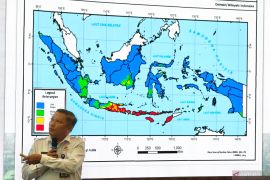"The inflation in March was increased by the weather conditions in a number of regions in the country, such as mountain eruptions and haze, which disrupted the peoples activities," BPSs chief Suryamin said on Tuesday.
The 0.08 percent inflation in March 2014 was lower than the previous month, which was 0.26 percent, the BPS chief said.
Therefore, in the first quarter of 2014 (January - March), inflation was 1.41 percent, while the year-on-year inflation reached 7.32 percent.
Commodities whose prices increased in March included rice, chili, instant noodles, air transport fares, garlic, cooking oil, filter clove-flavored cigarettes, milk for infants and cars.
Processed food, drink, cigarette and tobacco products contributed 0.07 percent to the inflation, followed by housing, water, electricity, gas and fuel group that contributed 0.04 percent and health, recreation and sports that contributed 0.01 percent.
Suryamin said the increase in the price of rice in a number of regions was caused by the eruption of Mount Kelud, which affected agriculture in East, Central Java. The eruption of Mount Sinabung affected prices of commodities in North Sumatra.
The BPS also stated that the current legislative elections campaigns, which began in mid- March had no significant impact on the 0.08 percent inflation in March.
"The legislative campaigns had been carried out since March 16, but their impact on goods and service prices was not too significant," Suryamin noted.
He explained that the simultaneous campaigns across the country were running smoothly and the supplies of goods and services were also smooth without constraints.
In March 2014, the BPS reported an inflation of 0.08 percent lower than that of February, which was 0.26 percent.
He pointed out that inflation in March was due to the increase in the prices of processed food, drink and transportation fares.
"Inflation was more influenced by climate in a number of regions, including mountain eruptions and haze, which disturbed peoples activities. Campaigns almost had no influence," the BPS chairman asserted.
During the campaign, drink and food for supporters were supplied by legislative candidates. "They were generally free of charge; no matter what kind of commodities, such as food, drink and even fuels, they were provided by the candidates," he noted.(*)
Editor: Heru Purwanto
Copyright © ANTARA 2014











